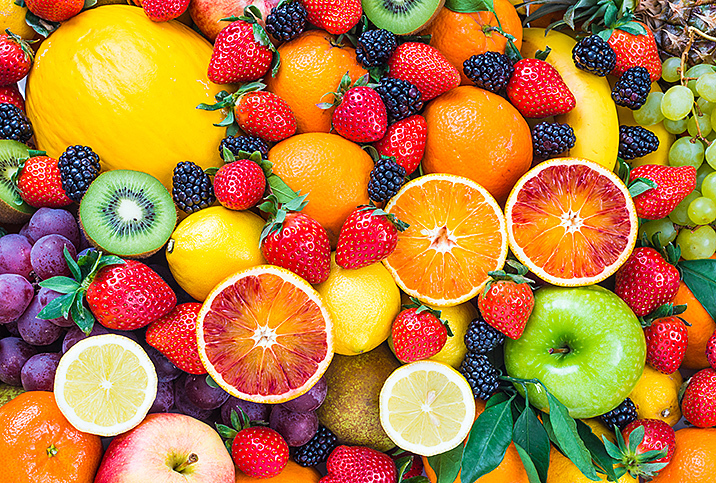Ultra-Processed Foods May Increase Risk of Brain and Ovarian Cancer

While research has implicated multiple types of foods, such as refined sugars and red meat, in increased disease risk, one category, ultra-processed foods (UPFs), may be particularly harmful. A new study suggests a potential link between UPFs and certain types of cancer.
What are UPFs?
The link between nutrition and health is well-established. Just as a predominantly whole-food diet can help nourish and fortify the body, nutritionally deficient food can contribute to various adverse effects.
Most foods undergo some type of processing—cleaning, grinding, refrigerating or freezing, fermentation, or pasteurizing—that doesn't markedly impact their nutritional value. However, ultra-processed foods are industrially made products that contain artificial ingredients that include the following, as defined by the NOVA classification system:
- Flavor enhancers
- Additives
- Emulsifiers
- Thickeners
- Colors
- Sweeteners
- Preservatives
Most UPFs contain several such ingredients and contain little, if any, nutritional value.
Examples of UPFs include the following:
- Sugar-sweetened drinks
- Cookies
- Chips
- Most fast food
- Some frozen dinners
- Some lunch meats
- Some breakfast cereals
Prior studies have suggested an association between ultra-processed foods and ailments such as obesity, type 2 diabetes, high blood pressure and pregnancy complications.
A 2023 study from Imperial College London indicated a diet high in UPFs may increase the risk of being diagnosed with ovarian cancer in some women as well as a higher risk of breast cancer.
What did the 2023 UPF study find?
Researchers used U.K. Biobank records to collate information on the dietary habits of 200,000 middle-aged adults and reviewed participants' health over 10 years. They assessed three areas:
- Participants' risk of developing any cancer
- Participants' risk of developing one or more of 34 specific cancer types
- Participants' chances of dying from cancer
Scientists found that for every 10 percent increase in UPFs in a person's diet, the person was 2 percent more likely to develop cancer—brain and ovarian cancer were most prevalent—with a 19 percent increase in the risk of ovarian cancer, specifically.
Researchers also found every 10 percent increase in UPFs was associated with a 6 percent higher risk of dying from cancer, particularly breast and ovarian cancer. The mortality rates for these cancers increased by 16 percent and 30 percent, respectively.
These rates persisted when researchers adjusted for socio-economic, behavioral and dietary factors, including smoking status, physical activity and body mass index (BMI).
Why do UPFs potentially increase overall cancer risk?
The study is observational and does not prove cause and effect, said Kiara Chang, Ph.D., a research fellow with the Public Health Policy Evaluation Unit, Imperial College London and the study's first author.
But many potential mechanisms could help explain the association between UPFs and overall cancer risk.
One factor is poor nutritional value. UPFs are often high in salt, sugar, and unhealthy fats and low in nutrients such as fiber, said Eszter Vamos, Ph.D., a senior clinical lecturer in the School of Public Health at Imperial College London and the study's senior lead author.
Research has demonstrated a link between an unhealthy diet and an increased risk of various cancers.
Approximately 80,000 new cancer cases among U.S. adults were thought to be associated with a suboptimal diet in 2015, a 2019 study published in JNCI Cancer Spectrum suggested.
Without sufficient nutrients like fiber and healthy fats, the body cannot perform essential functions, said Barry Sears, Ph.D., a Peabody, Massachusetts-based biochemist, creator of the Zone Diet and president of the Inflammation Research Foundation.
"It is more likely due to what is taken from them than what is added. The removal of the fermentable fiber reduces the ability of the gut microbes to make short-chain fatty acids that are signaling agents for the immune system," Sears said.
The result is a reduction in bodily function.
"The removal of omega-3 fatty acids reduces the ability of the body to make powerful hormones (resolvins) that turn off excess inflammation. Increased inflammation and a decreased immune response are the most likely factors leading to increased cancer incidence," Sears said.
How do UPFs potentially inflate your risk of cancer?
Previous studies demonstrated UPFs are linked to obesity, and people with excess fat tissue have a higher likelihood of developing cancer, Chang and Vamos said. More than 684,000 obesity-related cancers occur in the United States annually, according to the Centers for Disease Control and Prevention (CDC).
UPFs may also contain potentially cancer-causing agents, such as additives, chemicals generated during food processing and chemicals that leach into the food from its packaging, Chang said.
One way in which such substances may contribute to cancer is through altering the structure and metabolism of proteins in the body, according to Liudmila Schafer, M.D., an oncologist in Kansas City, Missouri, and the CEO and founder of The Doctor Connect.
"A deficiency or modification of dietary protein or amino acids has long been known to impair immune function. An impaired immune function is known to predispose to the development of cancer," Schafer said.
Dietary deficiencies and substances in UPFs also cause dysbiosis—an imbalance—in the human microbiome, which has been linked to diminished immunity, increased inflammation and a heightened risk of disease, including cancer, she added.
"For example, artificial sweeteners such as aspartame affect human metabolism and the composition and functioning of gut microbiota," Schafer said. "Another example is bisphenol A, a contaminant suspected of migrating from the plastic packaging of ultra-processed foods."
Why is it believed that UPFs might contribute to certain cancers?
Chang and Vamos said theirs is the first study with a sufficient sample size to assess associations between UPFs and many different cancer types, including ovarian, breast and brain cancers. More studies on different populations are necessary to confirm the findings and identify what aspects of UPFs might contribute to disease.
"This is a small observational study and should be replicated before we tell the general population that UPFs increase the risk of ovarian cancer," said Dolores Woods, R.D.N., a nutritionist with UTHealth Houston School of Public Health.
Vamos said the results align with previous research.
Diets that are high in unhealthy fats and low in vegetables link to heightened ovarian cancer risk, according to a 2009 study published in The American Journal of Clinical Nutrition.
Obesity, frequently associated with a high-UPF diet, can also raise a person's chances of developing specific types of cancer, including breast cancer, due in part to an increase in estrogen and insulin levels, per the National Cancer Institute (NCI).
Acrylamide
There is also some evidence of a link between acrylamide and ovarian cancer. Acrylamide is a chemical found in tobacco smoke and UPFs such as french fries, potato chips, and packaged and mass-produced crackers, bread and cookies.
Acrylamide intake was associated with a slight increase in ovarian cancer risk, particularly among never-smokers, a 2020 study suggested. Research has indicated that acrylamide can alter hormones and impede ovarian function.
Sugar
Moreover, studies have shown a diet high in sugar can alter the brain's dopamine production, contributing to brain cancer, Schafer said.
Added sugar can feature prominently in the ingredient list of many UPFs.
"Sugar in UPFs can affect the brain by censoring and triggering dopamine release. It is known that dopamine signaling drives specific changes in brain cells, stimulating the development of brain cancer called glioblastoma," Schafer said.
Dopamine can potentially cause more damage in this context.
"Triggering dopamine makes brain cells more aggressive and resistant to therapy. Further research studying ingredients is needed to identify the exact cause," she added.
Bisphenol A
Experts also said some chemicals in UPFs are known to interfere with the endocrine system. The resulting hormonal dysfunctions and imbalances could make a person more vulnerable to hormone-related cancers, including ovarian and breast cancers.
Bisphenol A is one example of an endocrine-disrupting chemical (EDC). EDCs can mimic the body's natural hormones, including estrogen, and interfere with their production, processing and action. Multiple studies have suggested a link between bisphenol A and multiple health conditions, including breast cancer.
How can you better avoid UPFs?
UPFs are ubiquitous in high-income countries. In the U.K., the UPF consumption rate is the highest in Europe, accounting for more than 50 percent of the average person's diet, per the new study.
That's comparable to the United States, where UPFs make up approximately 57 percent of the average person's caloric intake, according to a 2022 study published in the American Journal of Clinical Nutrition.
But the demand for relatively cheap, convenient, flavorful, long-lasting and cleverly marketed foods is soaring worldwide.
"Ultra-processed foods are everywhere, and they are designed to be ready to consume and extremely tasty, often with the use of industrially derived ingredients and additives," Chang said. "They are also aggressively marketed with strong brands and especially target children (e.g., using cartoon characters on the packaging or in advertising, free toys)."
Because of their omnipresence, UPFs can seem impossible to avoid. But experts said cutting back, as part of an overall healthy lifestyle, may have important benefits, including reduced cancer risk.
"As ultra-processed food consumption is linked with a range of poor health outcomes, it is important that people are aware of the health risks of consuming them in high levels," Vamos said.
To identify UPFs, Vamos said to check for additives and "anything that we do not usually use in home cooking," such as thickeners, flavor enhancers, high-fructose corn syrup and hydrogenated oils. Just one of these ingredients can indicate a UPF.
"The longer the label, the more processed the food is," Sears said.
UPFs with emulsifiers and artificial sweeteners, which can cause significant damage to the gut microbiome, may be particularly harmful, according to Sears.
Common examples of products with these ingredients include packaged sweets, sodas, mass-produced breads and pastries, sauces, ice cream and nut butter, a 2018 Alimentary Pharmacology and Therapeutics article said.
Reference the Codex Alimentarius or "Food Code," a collection of standards, guidelines and codes adopted by the Codex Alimentarius Commission, an arm of the Food and Agriculture Organization of the United Nations, Schafer said.
The bottom line
Along with reducing UPFs, experts recommend a plant-forward diet with plenty of vegetables, fresh fruit and healthy fats, including omega-3 fatty acids.
"Focus on whole food first, such as whole fruits, vegetables, seeds and legumes. Some processed foods such as whole grain bread, canned beans, canned tuna, low-sugar cereals can still be a part of a healthy diet," Woods said.
Think variety.
"Many times, people eat UPFs and displace other healthful foods, so the key message is to eat a variety of whole foods every day," Woods said.


















